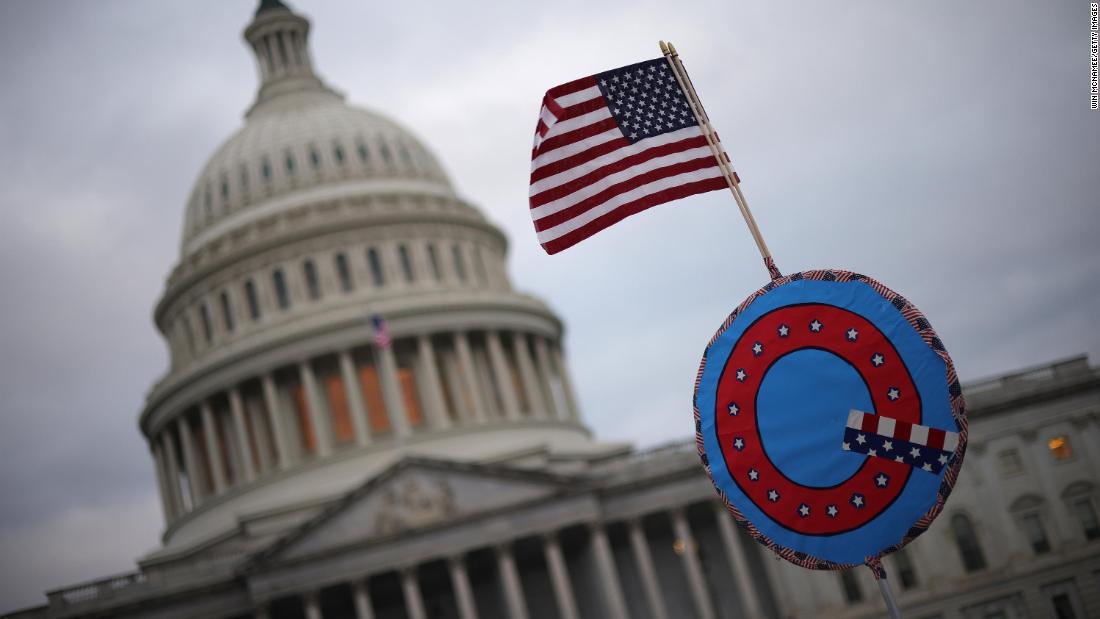Talk of overturning the 2020 election on new social media platforms used by QAnon followers sparks fears of further violence
The social messaging platform Telegram has emerged as a particular source of concern among law enforcement officials, the congressional sources say. Groups on the platform dedicated to QAnon and pro-Trump conspiracy theories have tens of thousands of members — many of whom hang on every word the former President says.
Trump’s comments to right-wing media outlets in recent weeks have played directly into the false belief among some of his supporters that he will be reinstated as president in the coming months.
Federal law enforcement officials say there is an overall concern about rhetoric on the election in general, both online, on Telegram and other sites, and offline.
That resulted in a surge of downloads for alternative social media apps, and many Trump supporters have found a home on Telegram, where there are fewer rules against misinformation and conspiracy theories like QAnon.
Congressional sources tell CNN that Trump’s comments about the highly questioned Republican-led audit in Arizona and his reported comments about returning as president in August are of particular concern.
One clip that circulated widely in some Telegram groups was part of an interview Trump gave to OAN in May. In a response to a question about a potential 2024 candidacy, Trump said that “something has to be done” before 2022 to stop the Democratic agenda.
“He doesn’t have to wait until 2024 people, he’s coming back this year, everything is going to be reversed,” one Telegram user commented on the clip.
“It’s a great day when we start seeing evidence of the plan coming together! He just told us it won’t be long now,” wrote another.
In another May interview with a right-wing radio host, Trump falsely suggested the controversial Republican-led audit in Arizona and audits elsewhere would show he didn’t lose the election.
“It’s going to be a very interesting time in our country,” he said. “How do you govern when you lost?”
“We The People will take action,” one Telegram user commented in reaction to a clip of the interview.
“Trump knows what happens. Biden administration will be removed,” commented another, while one warned, “He just told us things are about to get very ugly all over America. These thugs aren’t going to take this news very well! Be prepared!”
Telegram did not respond to CNN’s request for comment.
While Trump himself does not appear to have a public Telegram account, his son Donald Trump Jr. joined the platform earlier this year and now has more than 1 million followers.
Ron Watkins is a former administrator of 8Kun (formerly 8chan) a hate-filled online forum that is the home of QAnon. The forum has been linked to multiple atrocities, including the El Paso and Christchurch shootings in 2019.
Watkins had made a name for himself on Twitter in the months between the election and the insurrection by posting conspiracy theories about voting machines.
In the days before the insurrection, Watkins was retweeted multiple times by Trump. He was suspended by Twitter after January 6.
Now, Watkins posts daily to his 200,000 followers on Telegram in Arizona — continually casting doubt on the election result.
CNN’s Evan Perez contributed to this report.
![]()


